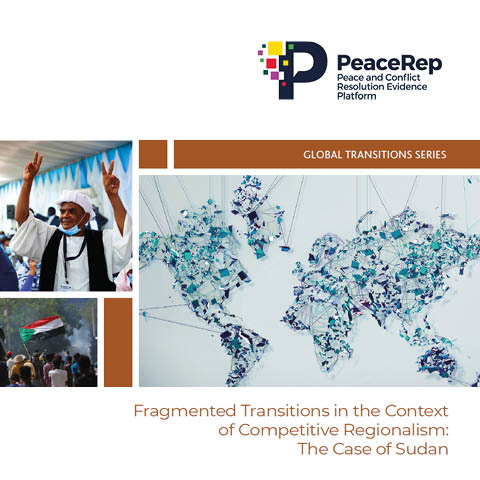
Fragmented Transitions in the Context of Competitive Regionalism: The Case of Sudan
Authors: Jan Pospisil and Alice Jenner
Key Findings
- Sudan is undergoing a twin transition, shifting from both armed conflict and authoritarian rule. Both processes are intertwined and substantially impacted by a fragmented regional constellation.
- The regional and international constellation around Sudan provides a difficult and non-conducive environment for the Sudanese twin transition. Western partners prioritise regional stability over the fragile Sudanese democratic transition.
- Multilateral actors are bound by strict mandates and therefore focus on facilitating negotiations with the military regime, an approach widely rejected among the opposition.
- Whilst regional actors support stability in Sudan, they appear to have little interest in a successful democratic transition and prefer to work with military counterparts and more autocratic systems of rule.
- Regional dynamics are complex and unpredictable. International as well as Sudanese actors have to constantly work on their positioning within a fluid and flexible dynamic, and to forge and maintain alliances within the regional settlement.
- Stability in Sudan remains the most important goal that unites all international partners.
- If Western actors wish to have an influence on Sudan’s twin transition, they will need to take more risks with foreign policies, and challenge regional allies.
–
The Global Transitions Series looks at fragmentations in the global order and how these impact peace and transition settlements. It explores why and how different third-party actors – state, intergovernmental, and non-governmental – intervene in conflicts, and how they see themselves contributing to reduction of conflict and risks of conflict relapse. The series critically assesses the growth and diversification of global and regional responses to contemporary conflicts. It also asks how local actors are navigating this multiplicity of mediators and peacebuilders and how this is shaping conflict outcomes and post-conflict governance.